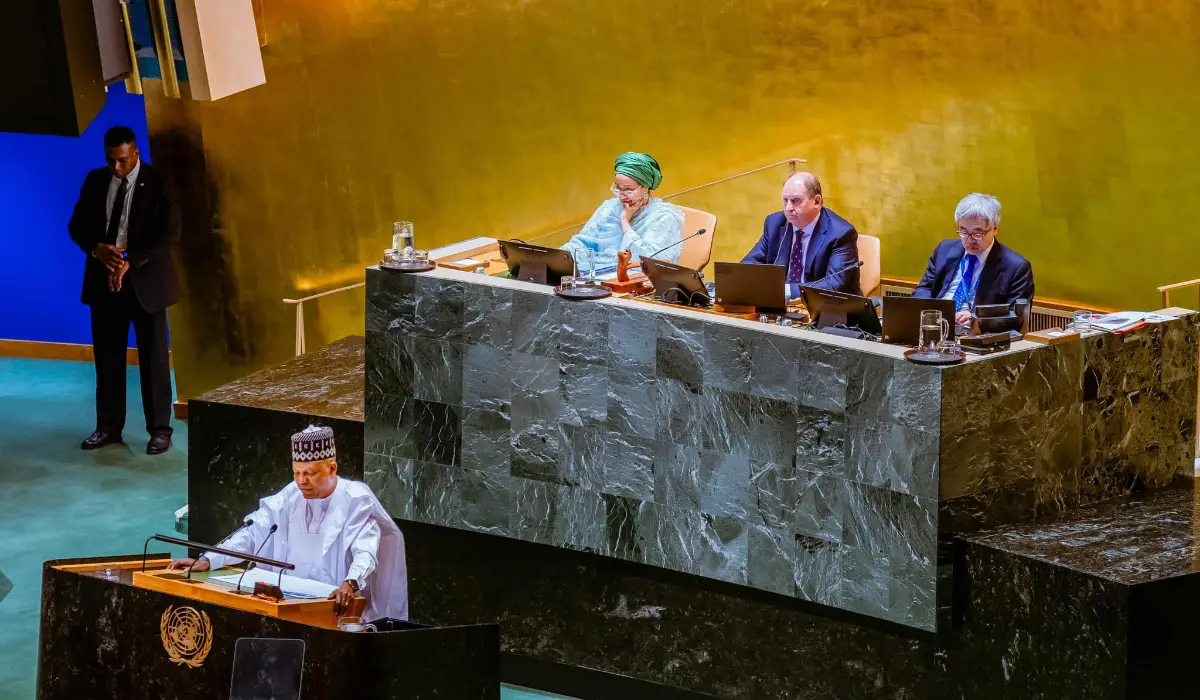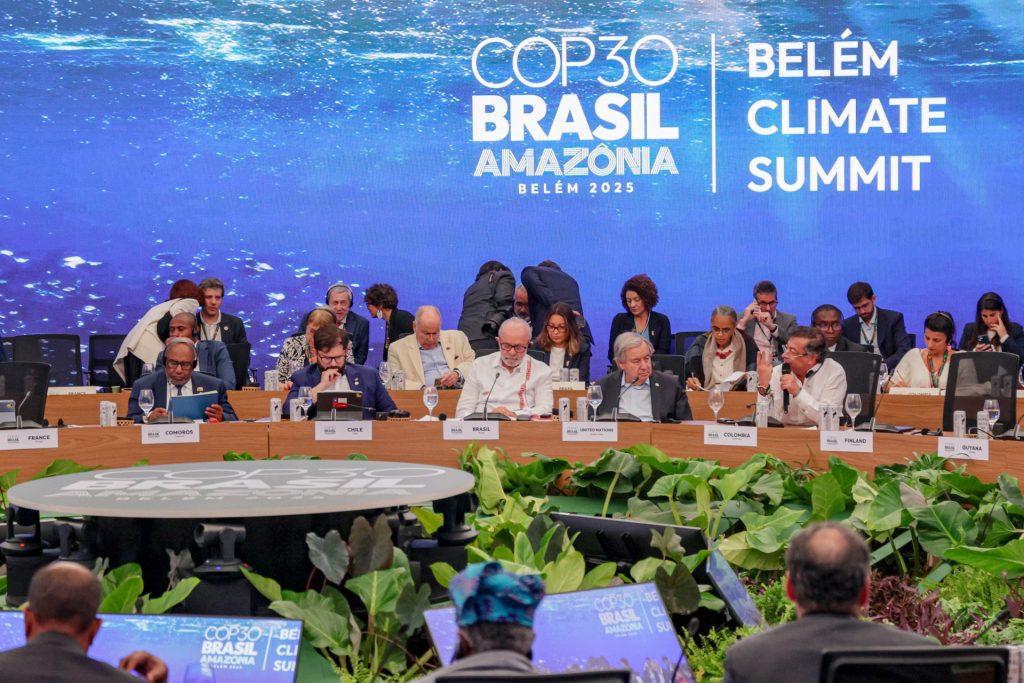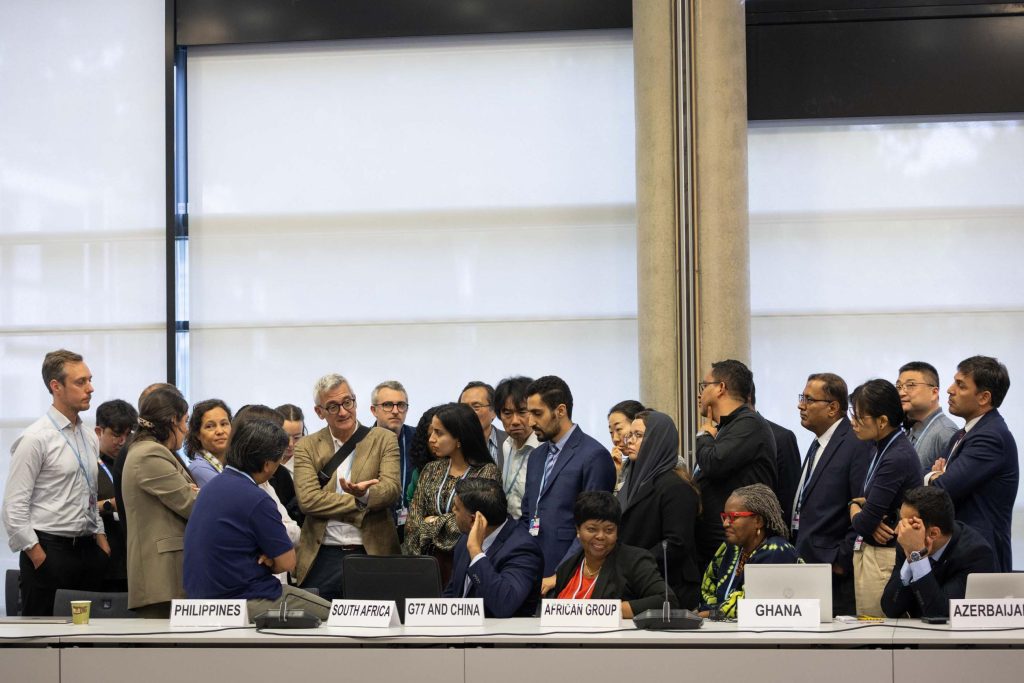The 79th United Nations General Assembly (UNGA) closed on 30 September, with world leaders delivering statements to tackle current global challenges, as part of the meeting’s theme of leaving no one behind. For a global economy currently dealing with a polycrisis capable of degrading humanity’s prospects, there is not a better platform than UNGA for leaders to make bold commitments. While marginal progress appears to have been made on some of the advertised policy issues, it appears that climate finance did not feature as a key issue, as was the case at last year’s UNGA. With it, there were only sparse discussions around mechanisms for cooperating on international tax to raise the needed finance for climate action. This is contrary to the expectations of some leaders in the global south, who anticipated strong strides to have been made in advance of COP29 towards finalising the new collective quantified goal (NCQG). Perhaps this was deliberate in order to make room for other geopolitical and development constraints. But the high-level plenary on existential threats posed by rising sea levels subtly deferred the decision on climate finance to COP29. As a result, expectations will be mounting for COP29 to deliver an ambitious NCQG, and other instruments for raising climate finance before the close of 2024. The stakes couldn’t have been higher.
Tax – the most potent vehicle for climate finance
New taxes provide a finance line to support climate action. The global south is being pushed in this direction given the lack of climate finance that has been provided. The global north has also been quick to exact its pound of flesh at the expense of the south on carbon taxes, particularly on the inequities from the EU’s CBAM, and deliberations by the UK, and the US for their own version of a CBAM. This leaves taxation and cooperation on taxation of wealthy individuals and corporations, as perhaps the most credible alternative to climate finance mobilisation.
At the Bonn climate conference, low-income countries and small and island nations called for a minimum US$1trillion to be agreed for the NCQG in grants and grant-equivalent instruments, which advanced countries pushed back on (preferring the more conventional climate finance measures), despite agreeing in principle for an increase in finance for climate action. New evidence suggests that by simply taxing the wealthy and their lifestyle, we could raise five times (an additional US$5trillion) every year the amount requested by the global south to finance climate action. For context, Oil Change International estimates that a wealth tax could generate US$483 billion, while sales of big-tech, arms, luxury fashion, military spending will generate US$566billion. Throw in the removal of fossil fuel subsidy of about US$1.116 trillion, and taxes on fossil fuel production of US$618 billion, and we are way beyond the ask of the global south.
International tax convention – where are we?
The process for an international tax convention has been in the works for nine years, since it was mooted in Addis Ababa in 2015. Having completed the first round of negotiations in May 2024, the approved terms of reference for the convention commits countries to a fair allocation of taxing rights, dealing with evasion and avoidance by high-net-worth individuals, cooperation on tax that will contribute to economic social and environmental development, transparency and illicit financial flow related issues.
As progressive as these appear, 44 countries – primarily advanced economies including the EU and its member states, abstained, while key members of the G-20 – the UK, the US, Japan, Canada, Australia, Korea, New Zealand and Israel, all voted against the framework. The EU cited a lack of inclusiveness, transparency and consensus as their justification. But their real push was for the framework to adopt the work of the EU and OECD instead on international tax cooperation. It has been argued that this framework will work disadvantageously to the interests of developing countries. The United States agreed with their European counterparts for consideration to be given to other forums for international tax cooperation, and wanted more flexibility in the work of the framework.
Regardless, the protocols to be developed are legally binding instruments, and will provide substantive tax measures for the commitments above. Curiously, countries have not yet agreed to develop a protocol on environmental challenges (which may provide a direct pathway for climate finance), as the terms of reference indicates such a protocol might only be considered in subsequent negotiations. For Africa however, this does not appear to be a setback as the Africa Tax Administration Forum, considers the framework inclusive and will pave the way for better negotiation towards the final convention in 2027. This optimism may hold true for other tax handles, but certainly not the issue of raising needed finance for climate action through tax.
One would have expected the leadership of Ghana, Kenya, Egypt and Morocco – as members of the ad-hoc committee to address the lack of developed country support for the framework more directly. While Kenyan President, William Ruto, only sung praises of the Africa Climate Summit, his counterpart from Ghana reflected on his government’s policies and called for a new global architecture to create opportunities in the social services sector. Only Nigeria’s Vice President – Kashim Shettima, who vaguely acknowledged progress and called for a deepening of the framework, offered a glimmer of hope.
Following previous experiences from multilateral efforts to improve financial and economic governance, and in the absence of consensus from advanced countries, we can safely predict that the framework may also not yield the expected results. This in turn will further undermine calls to improve multilateralism in relation to global public goods, including climate finance. Ruto has previously acknowledged this failure of multilateralism and implications for the climate finance agenda.
The road to COP29 and beyond
Between now and December 2024, a series of meetings will be held which will culminate in the approval of resolutions on the Committee for official negotiations, while the first half of 2025 is devoted to a possible draft convention. It is unlikely that COP29 will substantively deal with any significant issue of international tax cooperation for climate action. The focus likely will be on the amount needed for the new climate finance target (NCQG), which has despite prior discussions in Bonn, been a thorny issue. Perhaps there will be an opportunity to iron some access features which are vital for ensuring fairness and equity in climate finance distribution, and could potentially touch on instruments of tax and levies like the CBAM’s of advanced economies. It will be important for COP29 negotiators to reflect proactively on the seeming weaknesses of the tax convention on environmental cooperation, and address them through discussions on the access features, as well as the overall finance goal. Growing the climate finance goal by a factor of ten from the previous US $100 billion as expected by the global south will not be possible without considerations to some form of tax cooperation, complimenting conventional finance mechanisms. This is a responsibility that global south negotiators must take seriously, and negotiators from advanced countries must engage with progressively.
In relation to other forums, the 79th UNGA has been underwhelming on commitments for global tax cooperation despite some progress in framing the tax convention. The lack of substantial agreements on how taxation can contribute to climate finance remains a glaring gap. The division between advanced and developing countries over how to mobilise the necessary funds for climate action continues to obstruct meaningful cooperation. Moving forward, the path to multilateral cooperation will require addressing these unresolved issues if the global community is to achieve climate finance goals in a fair and equitable manner. This will require among other things;
- Prioritising tax cooperation for climate finance: Global leaders must place tax cooperation, including taxes on wealthy individuals, corporations, and fossil fuel subsidies, at the forefront of climate finance mobilisation. Without these measures, the Global South will continue to face financial constraints in addressing climate change.
- Strengthening multilateral engagement: Advanced and developing nations need to work together to address inequalities in carbon taxes and mechanisms like the EU’s CBAM, ensuring a fair distribution of climate finance resources and avoiding further division in international forums.
- A push for binding agreements on environmental taxation: COP29 negotiators should prioritise the inclusion of binding rules on tax cooperation for environmental challenges in the international tax convention, laying the foundation for sustainable and long-term climate finance solutions.





